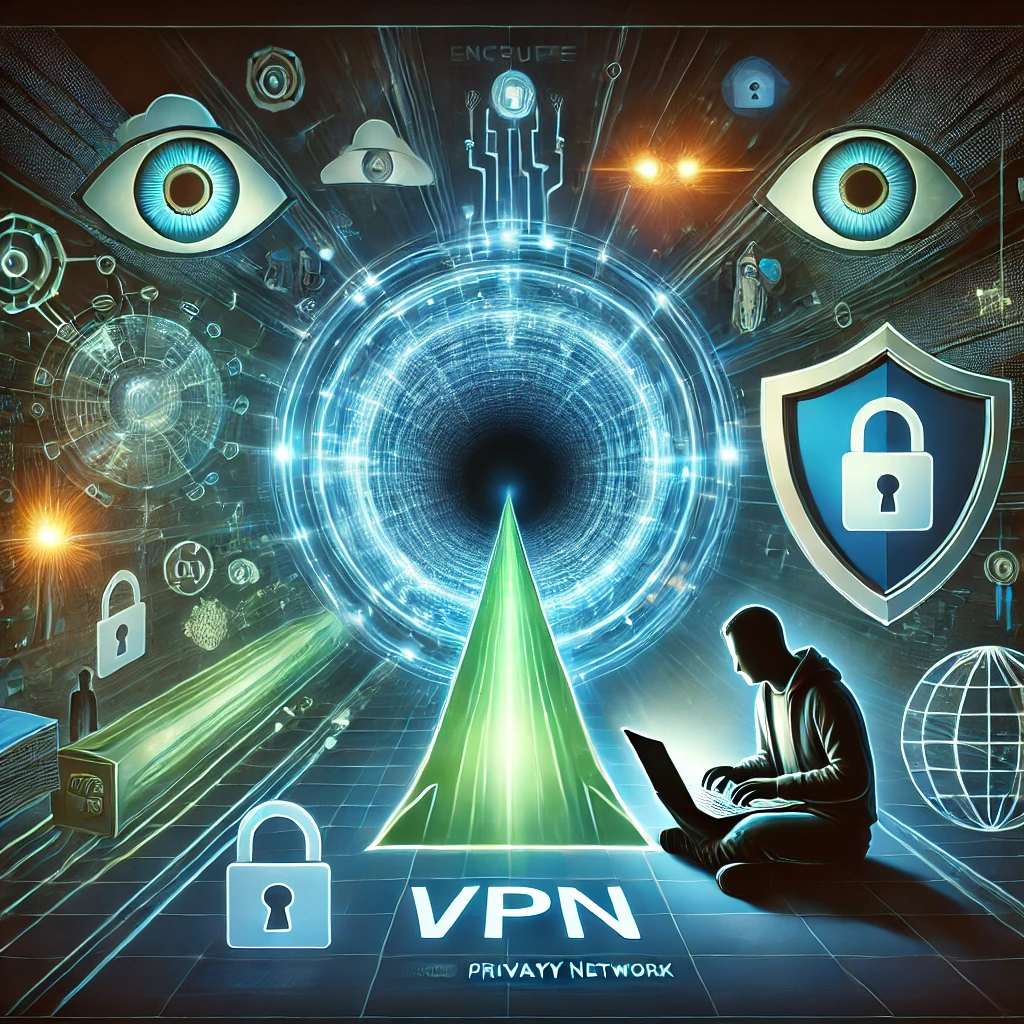Introduction
As we enter 2025, VPN security and online privacy are more important than ever. Therefore, individuals must take proactive steps to safeguard their data. Moreover, securing personal information helps prevent cyber threats. Governments are tightening digital regulations, cyber threats are evolving rapidly, and corporations continue to collect vast amounts of user data. Protecting your identity is no longer optional—it’s a necessity. One of the most effective tools for securing your online presence is a VPN (Virtual Private Network), which enhances both security and privacy online.
The internet has changed dramatically in recent years. Consequently, new cybersecurity challenges continue to emerge. Additionally, businesses and individuals must implement stronger security measures to adapt. More websites track user behavior, services impose geo-restrictions, and data breaches are increasing worldwide. Cybercriminals are becoming more advanced, using AI-driven techniques to exploit vulnerabilities. To stay safe, it’s essential to understand how VPNs work and how they help maintain privacy and security.
VPN Security and Online Privacy: What is a VPN?
A VPN (Virtual Private Network) is a service that routes your internet traffic through a remote server, effectively changing your public IP address and encrypting data while it moves between your device and the VPN provider. While VPNs help obscure your online activity from local networks, ISPs, and some trackers, they do not make you completely anonymous. The level of privacy depends on the VPN provider’s logging policies, encryption methods, and jurisdiction.
A VPN prevents your ISP from seeing your browsing history. Moreover, it adds a layer of protection against online tracking, making it harder for websites to identify you. However, websites can still use tracking techniques like cookies and browser fingerprinting, which a VPN alone cannot block. Choosing a provider with a strict no-logs policy is crucial to maximizing security.
How VPN Security Protects Online Privacy
VPN security and online privacy rely on encryption, IP masking, and data routing.
- Encryption: A VPN encrypts your internet traffic, making it unreadable to third parties. However, encryption applies only between your device and the VPN server. Beyond that, your data behaves like normal internet traffic.
- IP Masking: When connected to a VPN, your real IP address is replaced with the IP of the VPN server. This helps obscure your location, but websites can still track you through cookies and browser fingerprinting.
- Data Routing: Your traffic is rerouted through a VPN server before reaching its final destination. While this hides your activity from your ISP, the VPN provider itself could log data unless it follows a strict no-logs policy.
Using a VPN enhances privacy. However, it does not provide complete anonymity, as additional tools may still be required. Additional tools, like Tor or privacy-focused browsers, may be necessary for higher levels of security.
Why VPN Security is Essential for Online Privacy in 2025
🔒 1. Increased Government Surveillance & Censorship
Governments worldwide are expanding surveillance programs, imposing strict data retention laws, and restricting free speech. Many ISPs are required to store logs of user activity, and some governments force tech companies to install backdoors in encryption protocols.
By using a VPN, individuals can:
Bypass government restrictions and access blocked websites.
Encrypt their traffic to prevent surveillance.
Maintain online freedom and anonymity.
Not all VPNs can evade censorship effectively. Some countries employ Deep Packet Inspection (DPI) to detect VPN traffic. Choosing a VPN with obfuscation technology or combining Tor over VPN can improve access in high-censorship areas.
⚠️ 2. Growing Cybersecurity Threats
Cybercrime is increasing, with ransomware, phishing, and data breaches becoming more advanced. Public Wi-Fi networks, such as those in airports and cafes, are prime targets for cybercriminals.
Common threats include:
- Man-in-the-Middle (MITM) attacks: Hackers intercept traffic between your device and a Wi-Fi network to steal sensitive data.
- Evil Twin Attacks: Fake Wi-Fi hotspots trick users into connecting, exposing them to data theft and phishing attempts.
A VPN encrypts data on public networks, making it unreadable to attackers. As a result, your online activities remain more secure even in high-risk environments. Additionally, it helps maintain privacy when connecting to unsecured Wi-Fi. However, additional security measures like multi-factor authentication (MFA) and regular software updates are essential.
🎥 3. Bypassing Geo-Restrictions & Streaming Limitations
Streaming services such as Netflix, Hulu, and BBC iPlayer restrict content based on location. Consequently, users in different countries may not have access to the same content. Licensing agreements determine which movies and shows are available in different countries.
With a VPN, users gain the ability to:
Access content from different regions.
Watch sports and movies unavailable in their country.
Overcome access limitations imposed by workplaces or educational institutions.
However, streaming services actively block VPNs, detecting shared IP addresses and unusual traffic behavior. Some VPNs offer dedicated streaming servers or rotate IPs frequently to maintain access.
Choosing the Right VPN in 2025: Essential Security and Privacy Features
✅ Key Features to Look for in a VPN
When selecting a VPN provider, focus on the following essential features:
- Strong Encryption – Choose VPNs that implement AES-256 or WireGuard for secure data protection.
- No-Logs Policy – Ensure that the VPN provider does not store your browsing history or user data.
- Fast and Stable Connections – Look for optimized servers that support streaming, gaming, and general browsing without lag.
- Wide Server Network – More global server locations offer greater access to restricted content and faster speeds.
- Extra Security Features – A good VPN should provide a kill switch, DNS leak protection, multi-hop options, and ad/tracker blocking.
Your choice should depend on personal needs. If speed and streaming are priorities, select a provider with high-performance servers. If privacy is your main concern, opt for a VPN with a proven no-logs policy and additional security features.
Conclusion
Investing in a reliable VPN is crucial for VPN security and online privacy, ensuring a safer browsing experience in 2025 and beyond.
A VPN is no longer a luxury but a necessity. Whether you are concerned about privacy, security, censorship, or accessing global content, a VPN provides a reliable, secure, and private way to browse the internet.
As cyber threats continue to evolve, a trustworthy VPN remains an essential tool for protecting your digital life. Make an informed choice and browse with confidence!
🔹 Want to stay secure online? Choose a VPN that fits your needs and browse the web with confidence!

